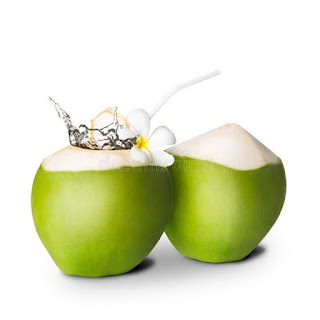Tender coconut, also known as young green coconut, is a tropical fruit prized for its refreshing water and nutritious flesh. It has been a staple in many tropical regions and is gaining popularity worldwide due to its numerous health benefits. This article delves into the health benefits, nutrition facts, uses, and potential side effects of tender coconut.
Health Benefits
- Hydration: Tender coconut water is an excellent natural beverage for hydration. It contains electrolytes such as potassium, sodium, and magnesium, which help maintain fluid balance in the body.
- Rich in Nutrients: Tender coconut water is low in calories and rich in vitamins and minerals. It provides essential nutrients like vitamin C, magnesium, manganese, and a small amount of B vitamins.
- Antioxidant Properties: The antioxidants in tender coconut water help neutralize free radicals, reducing oxidative stress and potentially lowering the risk of chronic diseases.
- Digestive Health: The fiber content in tender coconut flesh aids in digestion, prevents constipation, and promotes a healthy gut.
- Heart Health: The potassium content in tender coconut water helps regulate blood pressure and supports cardiovascular health by reducing the risk of hypertension.
- Weight Management: Tender coconut water is a low-calorie beverage that can be a healthy alternative to sugary drinks, helping with weight management.
- Kidney Health: Its natural diuretic properties help flush out toxins and prevent kidney stones by diluting urine and reducing stone formation.
Nutrition Facts (per 100 grams of Tender Coconut Water)
- Calories: 19
- Protein: 0.7 grams
- Carbohydrates: 3.7 grams
- Sugars: 2.6 grams
- Dietary Fiber: 1.1 grams
- Fat: 0.2 grams
- Vitamin C: 2.4 mg
- Potassium: 250 mg
- Sodium: 105 mg
- Magnesium: 25 mg
Uses
- Beverage: Tender coconut water is consumed as a refreshing drink, especially in hot climates.
- Culinary Uses: The flesh can be used in smoothies, desserts, salads, and savory dishes to add a tropical flavor.
- Skin Care: Tender coconut water is used in skincare products for its hydrating and soothing properties. It can be applied directly to the skin to reduce acne and promote a healthy complexion.
- Sports Drink: Due to its electrolyte content, it serves as a natural sports drink, replenishing fluids and minerals lost during exercise.
- Medical Uses: In some cultures, tender coconut water is used in traditional medicine to treat conditions like dehydration, diarrhea, and urinary tract infections.
Potential Side Effects
- Electrolyte Imbalance: While rare, excessive consumption of tender coconut water can lead to an imbalance of electrolytes, particularly potassium (hyperkalemia), which can affect heart function.
- Allergic Reactions: Some individuals may be allergic to coconuts and should avoid consuming tender coconut products to prevent allergic reactions.
- Blood Pressure: People with kidney issues or those on potassium-restricted diets should monitor their intake, as the high potassium content can impact blood pressure levels.
- Caloric Intake: Despite being low in calories, consuming large quantities of tender coconut water and flesh can contribute to overall calorie intake, which should be considered in weight management plans.
Conclusion
Tender coconut is a versatile and nutritious fruit with a range of health benefits. Its water and flesh provide essential vitamins, minerals, and antioxidants that promote hydration, heart health, digestive health, and more. While generally safe for most people, it's important to consume it in moderation to avoid potential side effects. Whether enjoyed as a refreshing drink, a culinary ingredient, or a natural skincare remedy, tender coconut continues to be a valuable addition to a healthy lifestyle.


%20Foods%20That%20May%20Ease%20Your%20Pain.jpg)



%20Benefits,%20Uses,%20and%20Everything%20You%20Need%20to%20Know%20-%20Healthy%20Roots%20&%20Habits,%20Healthy%20Roots%20&%20Habits%20Blog.jpg)
%20Benefits,%20Nutrition,%20Side%20Effects,%20and%20How%20to%20Use.jpg)




No comments:
Post a Comment